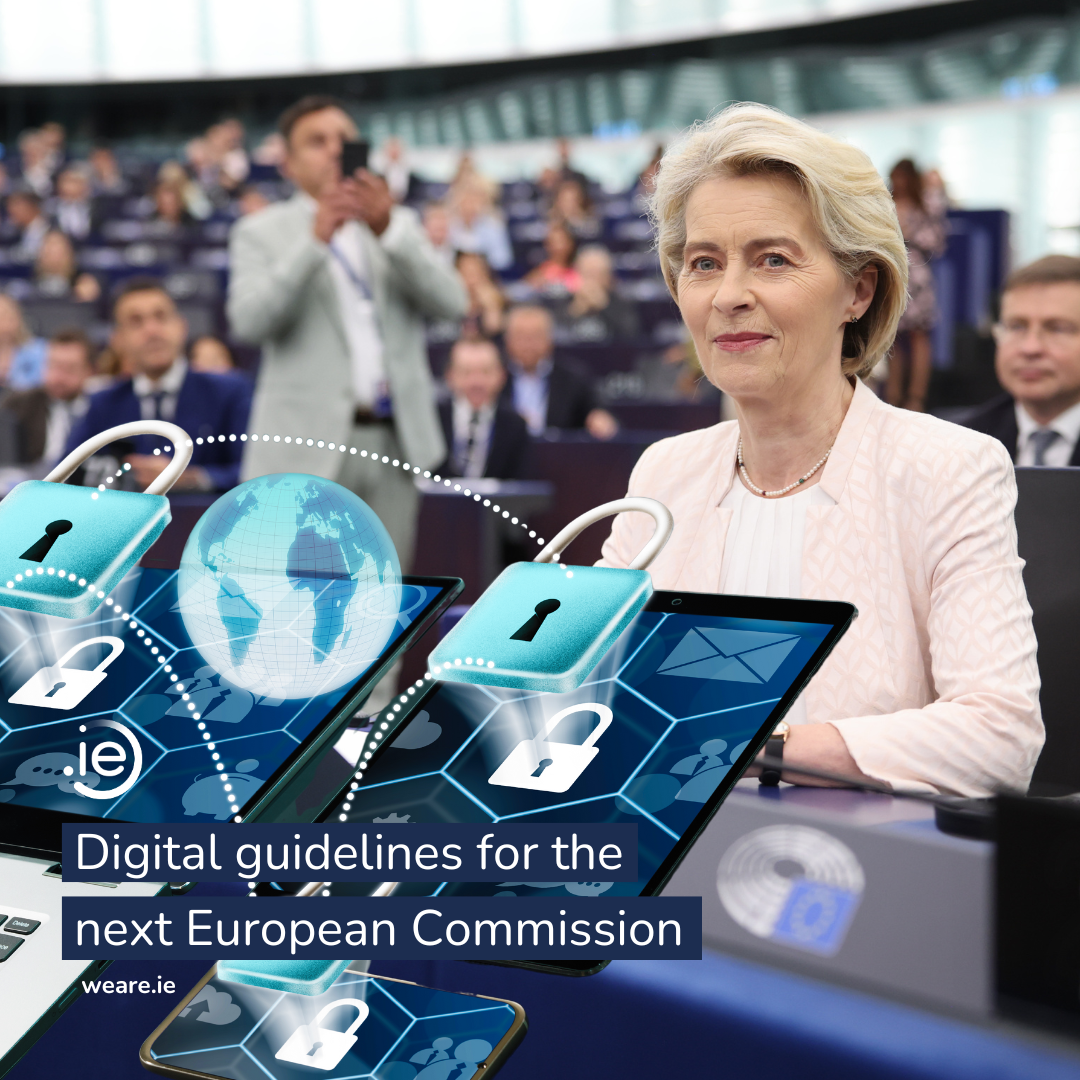Blog | Digital guidelines for the next European Commission
On 18 July 2024, Ursula von der Leyen was elected to serve a second term as the European Commission President. This Presidency will last from 2024 to 2029. On confirmation of her successful re-election, President von der Leyen released a political guideline for the next European Commission.
The priorities set out in this guideline draw on consultations and on the common ideas discussed with the European Parliament, and also on the European Council’s Strategic Agenda for 2024-2029. They are not an exhaustive work programme but a guideline to steer the European Commission’s common work for the next five years.
In our latest blog, we look at this guideline and analyse the cyber and digital components within it.
Background
Proposed in September 2021, the Path to the Digital Decade sets a clear way forward to achieve the digital transformation in the European Union. In December 2022, the European Declaration on Digital Rights and Principles complemented it by establishing the principles and commitments the EU’s digital transformation should follow. The first State of the Digital Decade report was published in September 2023.

During the mandate of the previous European Commission (2019-2023), the EU took significant action to advance on the objectives of Europe’s Digital Decade. With the proposal and adoption of key legislations, the Commission actively promoted a safer online space for European citizens and fostered consumer protection. Significant EU funding was also made available to foster the digital transformation, in particular through the Recovery and Resilience Facility (€150 billion), DIGITAL Europe (€7.9 billion), and Connecting Europe Facility 2 Digital (€1.7 billion).
Boosting productivity with digital tech diffusion
Europe’s competitiveness is hindered by lower productivity compared to global competitors, primarily due to the insufficient adoption of digital technologies. In President von der Leyen’s political guideline for the next European Commission, she outlined the necessity to boost productivity with digital tech diffusion. Further key points include:
- Focus on Digital Laws: The European Commission plans to concentrate on the implementation and enforcement of digital laws passed during the last mandate (2019).
- Responsibility of Tech Giants: Emphasis on tech giants taking responsibility for their significant influence on society and the economy.
- Enforcement of Digital Acts: Active enforcement of the Digital Services Act and the Digital Markets Act has begun. President von der Leyen aims to intensify this enforcement.
- E-commerce Platform Challenges: Addressing issues with e-commerce platforms to ensure a level playing field for consumers and businesses through effective customs, tax, safety controls, and sustainability standards.
- Digital Single Market: Achieving digital targets and creating a unified digital market could significantly boost EU productivity and competitiveness.
- Investment in Frontier Technologies: Increased investment in cutting-edge technologies like supercomputing, semiconductors, the Internet of Things, genomics, quantum computing, and space technology is pledged for the future.
Becoming a global leader in AI innovation
Europe is at the forefront of making AI safer and more trustworthy, addressing the risks associated with its misuse. Further key points include:
- AI Factories Initiative: President von der Leyen aims to provide AI start-ups and industry access to new, tailored supercomputing capacity within the first 100 days of the new European Commission.
- Apply AI Strategy: The European Commission will collaborate with Member States, industry, and civil society to develop a strategy that enhances industrial AI applications and improves public service delivery, including healthcare.
- European AI Research Council: A proposal to establish a European AI Research Council to consolidate resources, akin to the model used for CERN, will be made by President von der Leyen.
Europe needs a data revolution
In President von der Leyen’s political guideline for the next European Commission, the importance of data for AI and frontier technologies is outlined. Europe needs to harness data’s untapped potential to support AI and other advanced technologies, as data access drives competitiveness, productivity, and societal innovations. Further key points include:
- Data’s Economic Impact: Data access accounts for nearly 4% of EU GDP and is crucial for innovations like personalised medicine and energy savings.
- Challenges for Companies: Many European companies, especially SMEs, struggle to access necessary data, while large foreign tech firms exploit European data for their business growth.
- Support for Data Access: The EU aims to support companies by enhancing open data access, helping SMEs meet reporting requirements while maintaining high data protection standards.
- European Union Data Strategy: President von der Leyen proposed a strategy to create a simplified, clear, and coherent legal framework for data sharing among businesses and administrations, ensuring high privacy and security standards.
A Preparedness Union Strategy
The next European Commission aims to focus on elevating Europe’s ambition in crisis and security preparedness. Further key points include:
- Cyber Defence Enhancement: The next European Commission will focus on strengthening cyber defence capabilities, coordinating national efforts, and securing critical infrastructures. This includes developing a trusted European cyber-defence industry.
- Strategic Sanctions Approach: President von der Leyen aims to enhance the strategic approach to sanctions, ensuring flexible responses to new threats. This includes expanding the EU’s sanctions framework against cyberattacks and developing a new sanctions regime against hybrid attacks on the EU and its Member States.
Conclusion
We remain concerned that cyber-crime and online fraud continue to be a drag on digital adoption and risks undermining consumer confidence in e-commerce and digital business. It is important that the European Commission acts to ensure that our society seizes the opportunities offered by digital technology, minimises associated risks for citizens, and invests strategically to build competitiveness and resilience.
End of blog.
Access all our blogs here

As the trusted national registry for over 330,000 domain names, .ie protects Ireland’s unique online identity and empowers people, communities and businesses connected with Ireland to thrive and prosper online. A positive driving force in Ireland’s digital economy, .ie serves as a profit for good organisation with a mission to elevate Ireland’s digital identity by providing the Irish online community with a trusted, resilient and accessible .ie internet domain. Working with strategic partners, .ie promotes and invests in digital adoption and advocacy initiatives – including the .ie Digital Town Blueprint and Awards for local towns, communities and SMEs. We provide data analytics and dashboards built by the .ie Xavier team to help with data-led decision-making for the public, registrars and policymakers. The organisation is designated as an Operator of Essential Services (OES) under the EU Cyber directive, and we fulfil a pivotal role in maintaining the security and reliability of part of Ireland’s digital infrastructure.